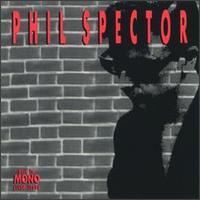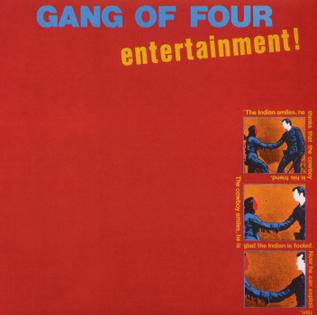










Yesterday I picked up Steve Reich’s Phases, a 5-disc Nonesuch retrospective of his phasing compositions of the ‘60s and ‘70s. When I looked it up on Amazon to see what other people had to say, I was surprised to see that – for a set of classic works – it was receiving some low ratings*. It turns out that the Nonesuch recordings are generally somewhat recent, from the 80s to early 2000s, and aren’t what many consider the “definitive” recordings of the pieces. Coincidentally or not, for these reviewers, definitive seems to be synonymous with “first”. It’s not that those were Reich’s own recordings and the Nonesuch versions are farmed out to various sub-par ensembles; many of the pieces, including “Music for 18 Musicians” and “Drumming”, are performed by Reich and his own group of musicians. Regardless, the reviewers dismiss these recordings as overproduced, criticizing things like mic placement and overall sound quality (too good); a common theme was that the recordings lack the immediacy and character of a live performance. To me, this sounded a lot like the griping generally heard from hard-line rock critics and fans. It was, of course, an appeal to authenticity. Since these tracks don’t recreate the feeling and sound of a live performance, they’re lacking. Never mind that the composer himself played on many of the recordings, and likely had a good deal of oversight during the recording process. In such a case, how are the new recordings any less authentic than the old? Particularly if they represent the artist’s evolving vision of the work.
Classical music presents an interesting contrast to rock music in that the pieces are written to be performed at different times, often by a variety of different ensembles. Pieces are generally written for live performance in front of an audience, rather than for recording. Classical music isn't designed to be consumed in the same manner as rock music - its variability is built in and assumed from the beginning. It's not a band writing a song for itself to perform, it's a composer writing a piece that could be performed by any number of ensembles. (It's interesting to note that in this sense, classical music bears more similarity to pop songwriting, ie. the Brill Building model, than it does to the traditional paradigms of rock music.) Thus, a recorded piece of classical music will always be lacking, and I think, as long as you keep this in perspective, it’s a reasonable attitude to take. These compositions are designed for live performance, to be heard in the concert hall, to be seen. Particularly for pieces like Reich’s phasing works, the dynamics and reverberations of a room can have a significant effect on the sounds created by the overlapping patterns. For an example, see my earlier post on “Clapping Music”. In the video, the sound is aided by the acoustics of the room, as well as the microphone of the video recorder, giving the sound a lo-fi quality that allows the single claps to occupy even more sonic space, filling out the sound beyond even the natural density created by the gradually shifting pattern. Compared to this, the studio recording off of his Early Works album sounds thin and precise, it is a little too perfect, but I don’t think this makes the recording any less essential.
The main problem that the detractors have is that they seem to expect the recorded pieces to be able to recreate the experience of the live performance – something they allege the original recordings were able to do. The short response to this is that nothing can recreate the live performance. Every live performance, no matter how perfect the ensemble’s performance, will be different. Every listen to a recording will be the same, even if the recording is of a live performance. By recording studio versions, the pieces are presented as a kind of blank slate – the piece performed as nothing more than the notes on the page, a perfect form that can never be replicated in a live setting. Just as such a perfect studio recording isn’t exactly ideal; I don’t think a live recording is either. Yes, a good live recording will capture the variables at work that day, that one moment in time, but once on record, those variables will never change, but even they will be degraded and altered by the recording process. Also, if you’ve only ever been exposed to one live recording of a piece, would you even be able to identify the variables as such? Is this any more true to the spirit of the piece than the perfect studio recording? Or are they both imperfect in their stasis when compared to the living sound of the live performance?
If we’re willing to acknowledge that a significant part of a piece of music’s beauty is found in its variable nature, to criticize a recording for lacking that variability is ultimately meaningless. It only serves to underscore the fact that the ideal setting for classical music is the live one. The only way to even begin to recreate the experience of variables that comes from the live performance is to listen to a variety of different recordings, noticing the differences in sound of all of them, in which case the studio recordings would have as much utility as any live recording. In this way, they serve their own purpose; these recordings are just as essential or definitive as any other.
*Some of the criticisms referred to below were found in reviews on the Amazon pages for the individual Nonesuch CDs, not the box set. However, these are the same recordings that are found in the set.












The All Saved Freak Band is a different kettle of fish—at once more powerful and more disturbing, and a reminder of how apocalyptic convictions, Christian or otherwise, can go sour. The band began when a drugged-out Chicago guitarist named Joe Markko moved to Ohio, where he met a fiery street pastor named Larry Hill. Convinced that the Chinese and/or Russians were coming, Hill set himself up as patriarch of an isolated survivalist Christian commune, replete with guns and goats. When he performed, Hill wore a wide Amish hat and a priest's habit, and he sang to hector and convert. But the band didn't really gel until Hill and Markko were joined by Glenn Schwartz, an incendiary blues shromper who had played guitar for the James Gang but had publicly renounced commercial rock. Living collectively, the band made a handful of intense and very strange records, including the Tolkien-inspired folk-rock rarity For Christians, Elves, and Lovers. In 1975, in response to Hill's authoritarian brutality, Schwartz's family attempted to kidnap and "deprogram" the guitarist. The attempt failed, and the band's third record was called Brainwashed.Schwartz's lyrics are invariably apocalyptic; in last night's opener, the first words he said were "2008 will be the end of you." A minor earthquake had hit the Cleveland area a few days prior, and he pointed to this as a signal from God of the coming End. Later, he advised the audience that we'd "better get out quick, 'cause that chemical warfare, it's gonna make you sick." Early in the set he stopped the music and began to chastise/preach to the audience, referring to certain spectators as "lame brains" and "dummys", yelling at them for drinking beer "full of chemicals". He also told us that 1 out of every 2 people has cancer, and that there were 14 people with cancer in the room that night. Given his extreme fundamentalist views, his tirades are also often laced with invective against women; last night he warned us of the "females in power [who] don't even have the good sense to wear a dress ... women in pants is disgusting, it's disgusting." Later in the set he stopped again, this time relating his experiences as a medic in the Vietnam war, referring to Vietnamese soldiers as "slant-eyes" and "japs", then segueing into anecdotes about cancer-stricken relatives who had been saved through the power of prayer. At this point, the bartender had enough of the ranting, and turned the stereo on, leaving Prince to drown out Schwartz. Following a talking-to from the bartender, the 2nd set was largely uneventful, with Schwartz sticking to the music. Mental illness aside, Schwartz is an incredible guitarist in the blues-rock style, coaxing sounds without the aid of any pedals or effects. At one point early in the first set, he took out a comb and did his hair with his right hand while soloing on the guitar's neck with his left. Later, he jumped up on an automated bowling machine, surprisingly nimble for his 60+ years. As much curious spectacle as blistering blues guitar set, it was remarkable to see such talent survive in a man whose mind had left him long ago.




Idolator's unsubstantiated and obnoxious "manifesto" is a pile of sub-MisShapes cooler-than-thou dogshit. "Online music criticism sucks, they're all dorky white kids, we're BADASS." This has turned everyone off, and I mean everyone. ... So far, the site reads like a piece of Chewels with no goo inside, Indieshite without the slanderous so-sue-me insider sneer (though I'm sure with some reputation-building, it will develop Gawker-level cachet). Maura's trying to even things out with nods to bands like Syrup USA and some other heartfelt digging, and if anyone has the ability to draw in readers from outside the narrow-minded hipster set it's her, but Idolator is obviously a job to its editors, at least for now, and that's a major incongruity with the divisive, overconfident contentiousness of that scene-shattering launch announcement.Now that Idolator is over a year old, it seems like as good an arbitrary time as any to reassess this criticism, particularly in light of two recent events. First, Idolator's editors made their only foray into 2007 year end list-making with their "Top 40 List of Awesomeness", and second, yesterday's post for their new intern search contained the most distilled version of their mission statement that there's been since Maura took over as Editor: "If you read Idolator, you know we're looking for someone with a gut-level love of music but a suspicious eye trained on all of the online hype and industry b.s. that comes with it in 2008." To begin with the latter statement, it clearly bears out Ott's early reading of the site. Even with the author of that derided "manifesto" gone, Idolator has remained clear in their suspicion of the online hype machine, largely composed of the "younger, self-policed culture writers" Ott refers to. While I obviously can't speak to the actual opinions of the Idolators, I imagine they're not completely opposed to the fanzine mentality, the "casual, party-hopping positivism," on its face. Rather, they are leery of the power and sway that the broad reach of the internet has given to that voice. Rather than the positive boosterism of a 2-4 issue a year fanzine - simply out to turn people on to some new bands - the breadth and communicative ability of the blogging world can make and/or break a band in a matter of weeks or months (see: Tapes 'n' Tapes, Birdmonster, Vampire Weekend, Black Kids, and plenty of others). Moreover, there's now real money involved (Stereogum is now a multi-million dollar venture), and if not money, then there's plenty of merch and other similar perks (the MOKB Zune imbroglio comes to mind). With nothing like editorial oversight, their casual, self-policed nature has allowed the world created by these blogs to spin out of control. In this case, I think Idolator's treatment of these issues is valid. Perhaps, given the passing of a year and three months or so, Chris Ott could agree that the milieu of the music blogging community is of a different nature than that of old cut-and-pasted-and-stapled paper fanzines.
The branded, jaded tone of the site—its Gawker quotient—is also 100% counter to the culture the entire pop music shouting match rose from, the fanzine. Idolator is a grotesque Baby Huey that has the potential to ruin a lot of slow-boiled friendships based on years of trust and good faith, to spoil the casual, party-hopping positivism of our younger, self-policed culture writers.

